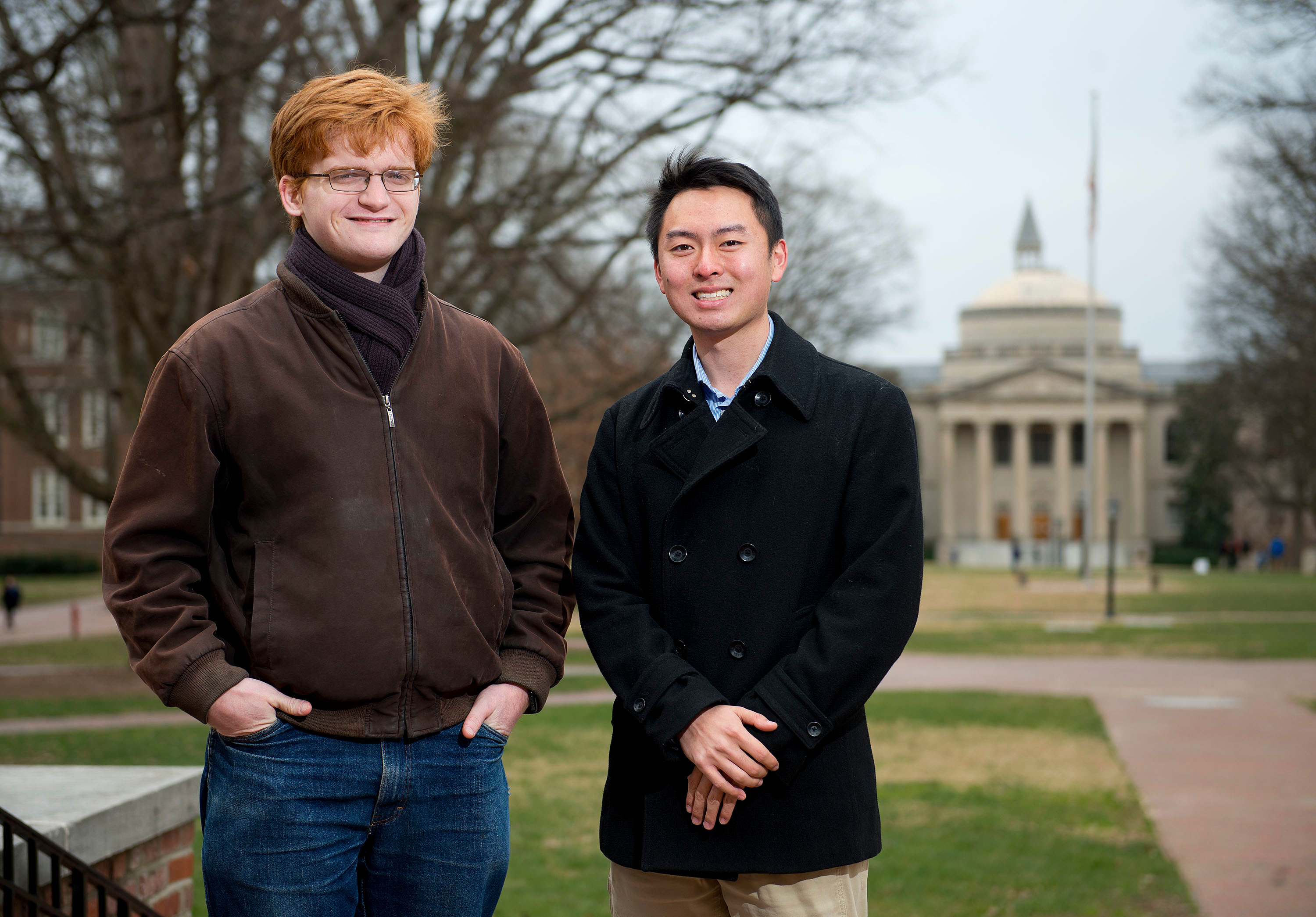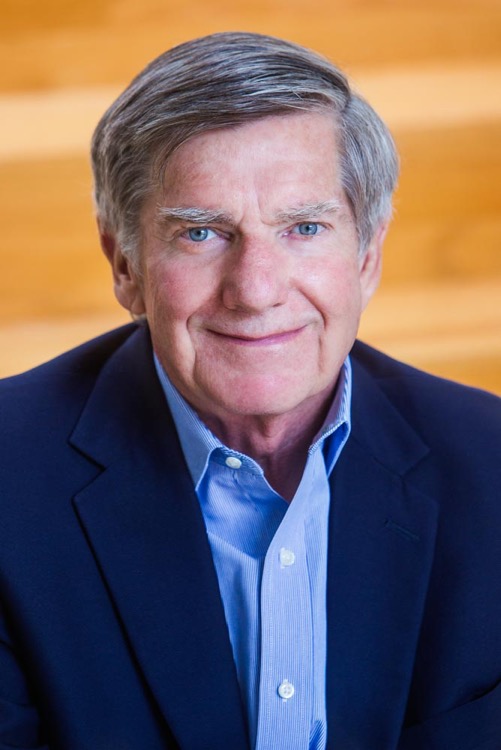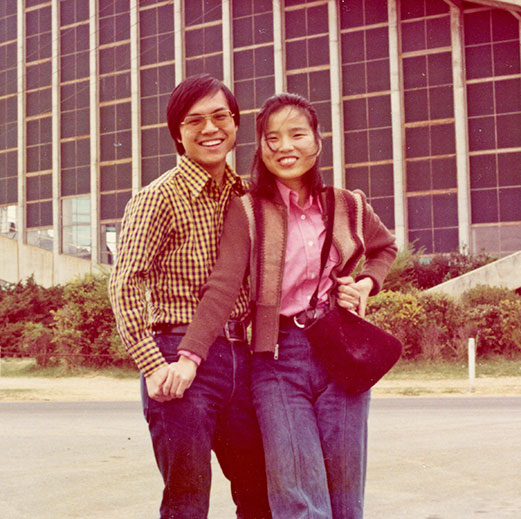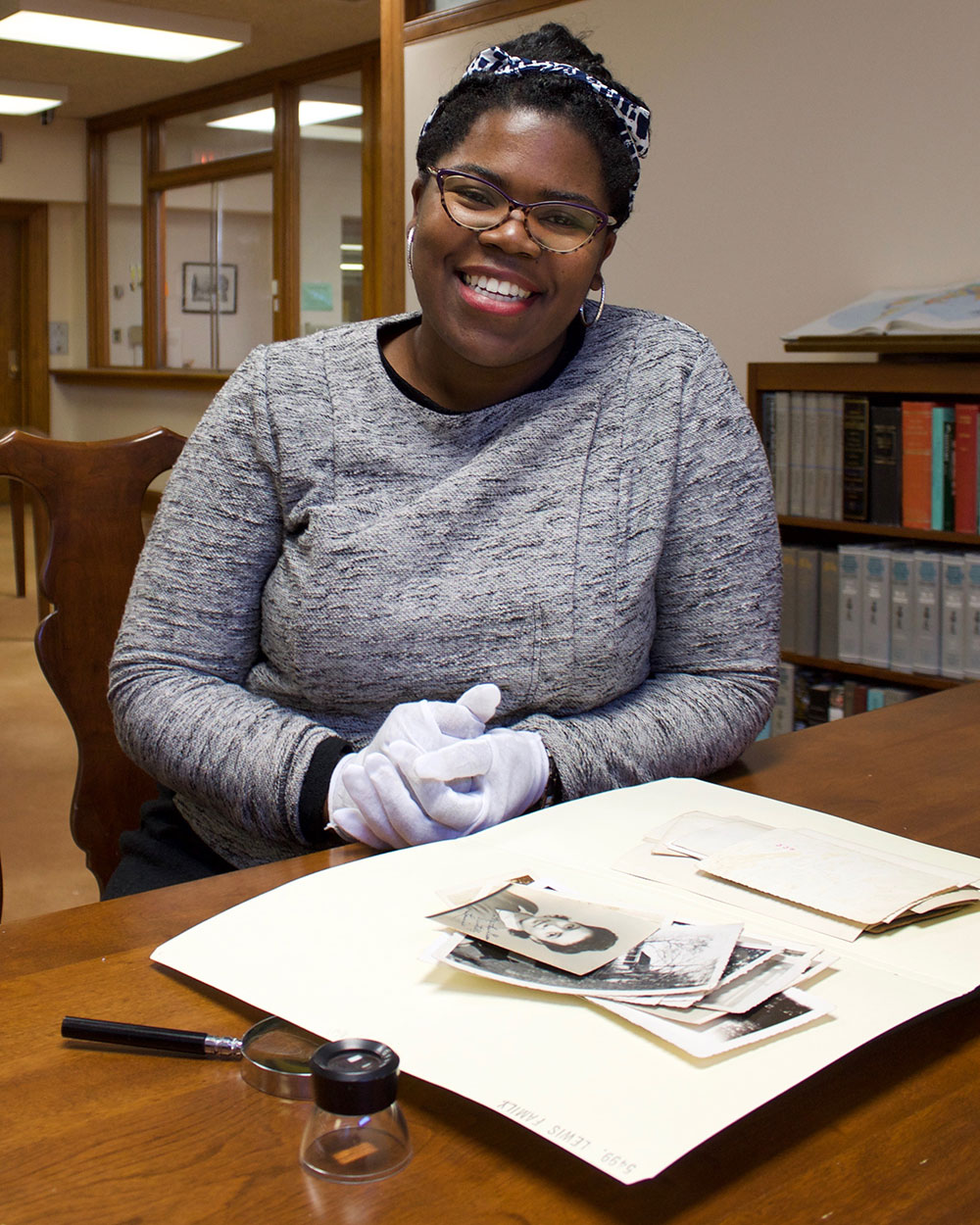Carolina Development
Annual Report
Fiscal Year 2016
Chancellor’s Message
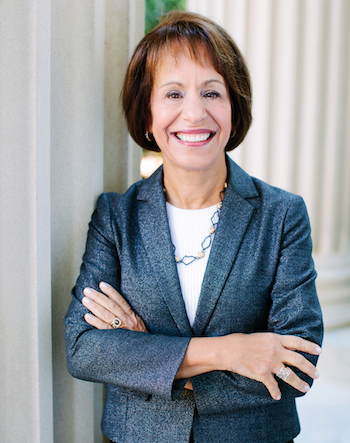
…it is particularly important to cite your important role in helping us make sure the best is yet to come…
Dear Carolina Supporters:
This time last year, we said, “The best is yet to come.” At this time of year, it is particularly important to cite your important role in helping us make sure the best is yet to come: We received a record $495.3 million in private commitments in fiscal year 2016, topping our previous record set in fiscal year 2015 by almost $50 million.
This is an extraordinary achievement. You and 68,000 donors like you can take credit and be proud.
You can also take pride in the many extraordinary achievements here at Carolina. An abbreviated sampling of these highlights over the past year includes:
- Carolina’s unwavering commitment to making dreams come true by creating the opportunities that come from attending a leading university available to students without burdening them with excess debt after graduation. For the 16th consecutive time, we placed first in Kiplinger’s Personal Finance magazine’s rankings for high-quality academics at an affordable price. We also placed first in U.S. News & World Report’s “Great Schools, Great Prices” list.
- Our faculty continue to be recognized for their excellence. Aziz Sancar, who won the Nobel Prize for Chemistry in 2015, received an O. Max Gardner Award, the oldest and most prestigious statewide honor, from the UNC Board of Governors this summer. Joseph DeSimone, Chancellor’s Eminent Professor of Chemistry and innovator of one of the world’s most sophisticated 3-D printers, was awarded the National Medal of Technology and Innovation by President Barack Obama in May.
- Our students continued their record of earning some of the world’s most prestigious scholarships, such as Yasmin Cole, a recipient of The Dean’s Master’s Scholarship at Imperial College London, and Blake Hauser, named a recipient of the Churchill Scholarship. The list of recent accomplishments also includes our first two Gates Cambridge Scholars in the same year: Larry Han and Matthew Leming.
This last point captures the very essence of Carolina and is at the heart of how you make a daily difference. Larry came here as a Morehead-Cain Scholar; Matthew as a Carolina Covenant Scholar. They embody our core commitment to student excellence and access.
These scholarship programs embody the power of private giving, as both rely on donor support. Fiscal year 2016 brought great news on this front, too. An anonymous donor pledged $10 million to each and also challenged us to raise another $20 million in matching funds by October 2017. (You can read more about the Give for Good: Scholarship Challenge.)
The challenge, along with our record fundraising year and many other successes, is generating tremendous momentum. And the timing couldn’t be better: We plan to publicly launch our comprehensive campaign in the fall of 2017.
Thanks to you, we continue to see that the best is yet to come.

Carol L. Folt
Special Feature

Give for Good: Scholarship Challenge enables students to break barriers
Gift from anonymous donor includes $20 million challenge for Carolina Covenant and Morehead-Cain Scholarships
On the heels of Carolina’s record-breaking fundraising year in fiscal 2016, the University accepted a $20 million match challenge in support of need- and merit-based scholarships. Running through October 2017, the Give for Good: Scholarship Challenge is structured as tandem $10 million matches—one benefiting the Carolina Covenant and the other Morehead-Cain Scholarships—to open the way to a world-class, Carolina education.
Featured Profiles
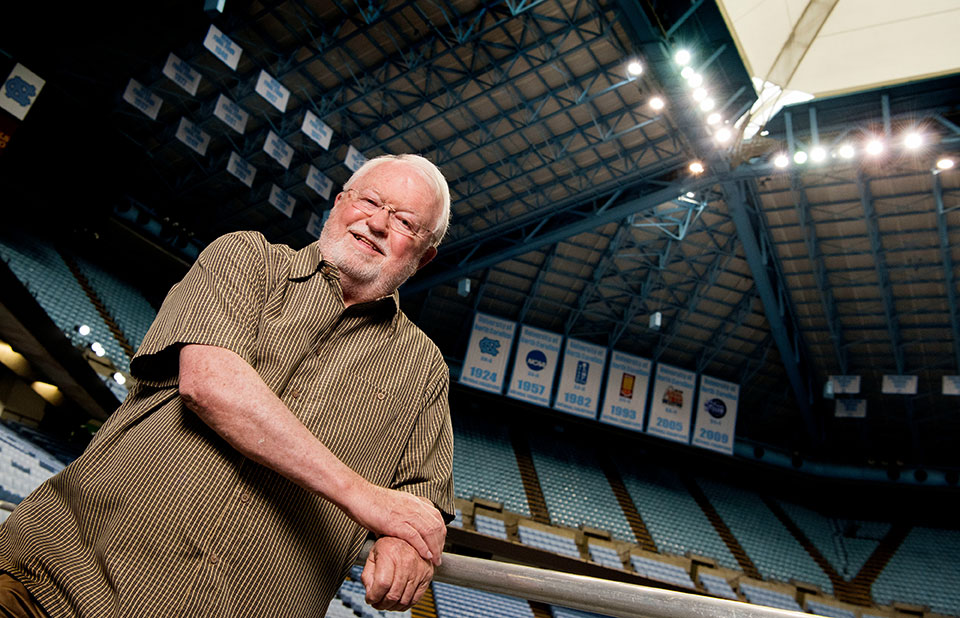
Fred Roper
Trading seats at the Dean Dome for impact at SILS
By Hope BaptisteSeats 6 through 9 in Row F of Section 229 in the Dean Dome have always belonged to Dr. Fred W. Roper ’60, ’62, (M.S.L.S.). Back when he was associate dean in UNC’s School of Information and Library Science (SILS), he purchased lifetime rights in 1982 as part of the faculty/staff fundraising effort to construct the building.
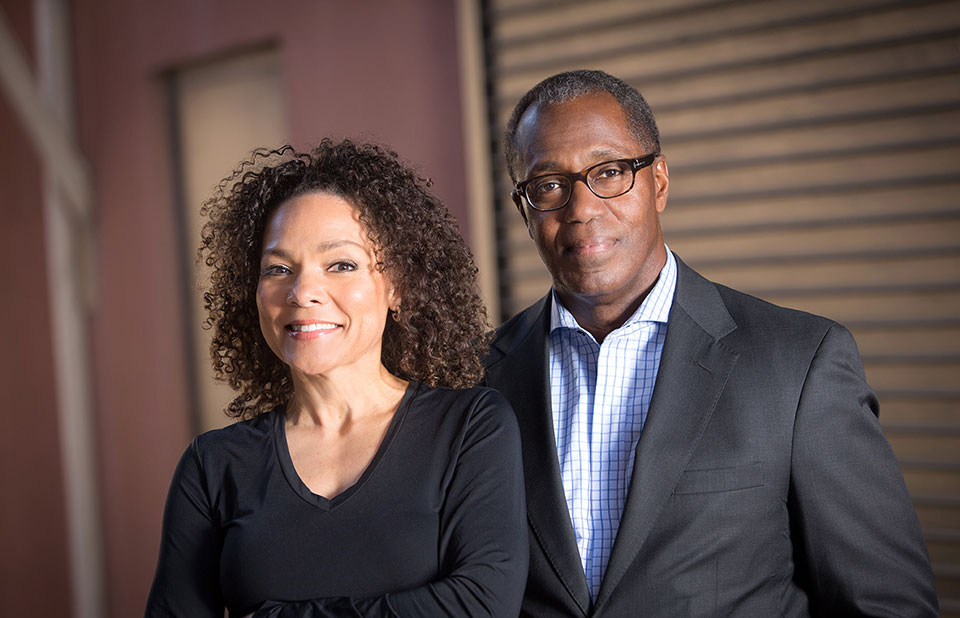
Lisa and Frank Emory
Sharing a love for education
By Michele LynnEditor’s note: This story is based on a piece that originally appeared in the Spring-Summer 2016 issue of Carolina Law.
Lisa and Frank Emory believe in the transformative power of education, and they’re committed to putting their beliefs into action.
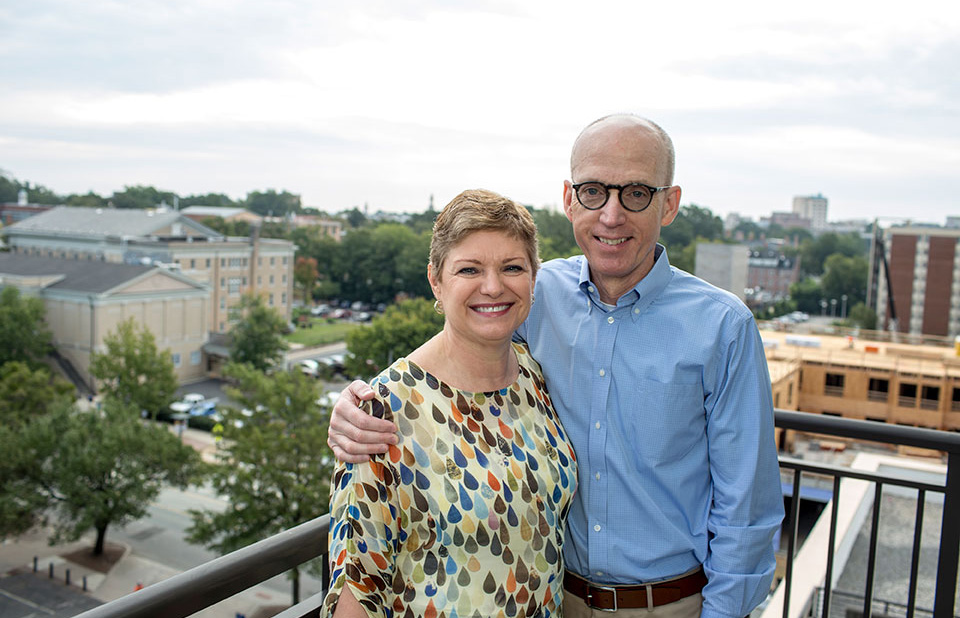
Sharon and Doug Rothwell
Coming home, giving broadly
By Gini HamiltonThey say you can’t go home again, but dedicated Tar Heels Sharon and Doug Rothwell are proving that to be a false assumption.
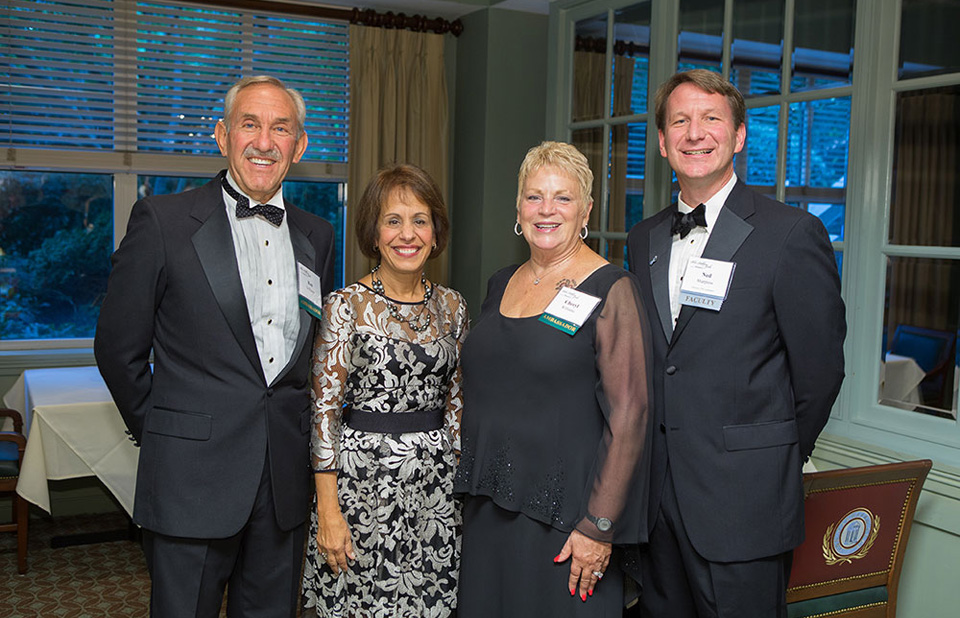
Cheryl and Ken Williams
Supporting a world-class leader in cancer research
By Kiecha L. BerzinsEditor’s note: This story is based on a piece that originally appeared in the Fall 2015 issue of Cancer Lines.
Ken and Cheryl Williams moved to Chapel Hill in 1988, when their younger children were just in the second and fourth grades. Ken, who received his master’s degree from UNC’s School of Public Health (now the Gillings School of Global Public Health) in 1970 and his doctorate in 1976, was already a true-blue alum, but Cheryl got her first “taste of Carolina” at a UNC men’s basketball game. She and Ken soon became regulars at a variety of athletic events.
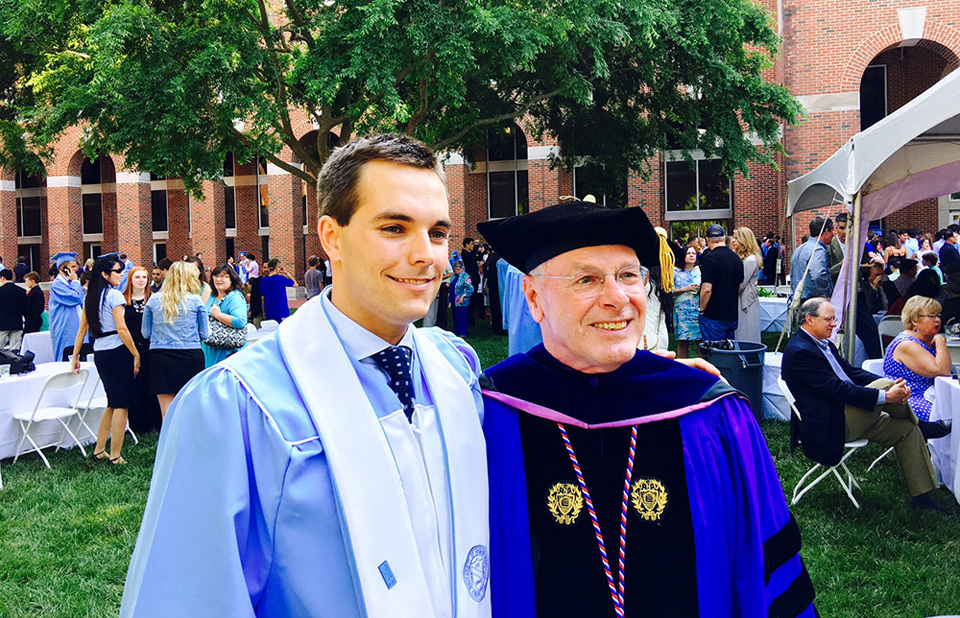
Sean Kennedy
Making the grade and giving back
By Camila MolinaCarolina took a chance on Sean Kennedy ’16.
Before Carolina, Kennedy wore different hats. He grew up in Kansas City, Missouri, where Friday nights were about football rivalries. During the summers, he worked for his family’s oil business as an oil filtration technician, helping recycle oil at a Ford Motor plant to decrease environmental impact and operating costs. But Kennedy didn’t see himself running the family business in the future and wanted to change his life trajectory, so he joined the Marine Corps.
Impact Stories
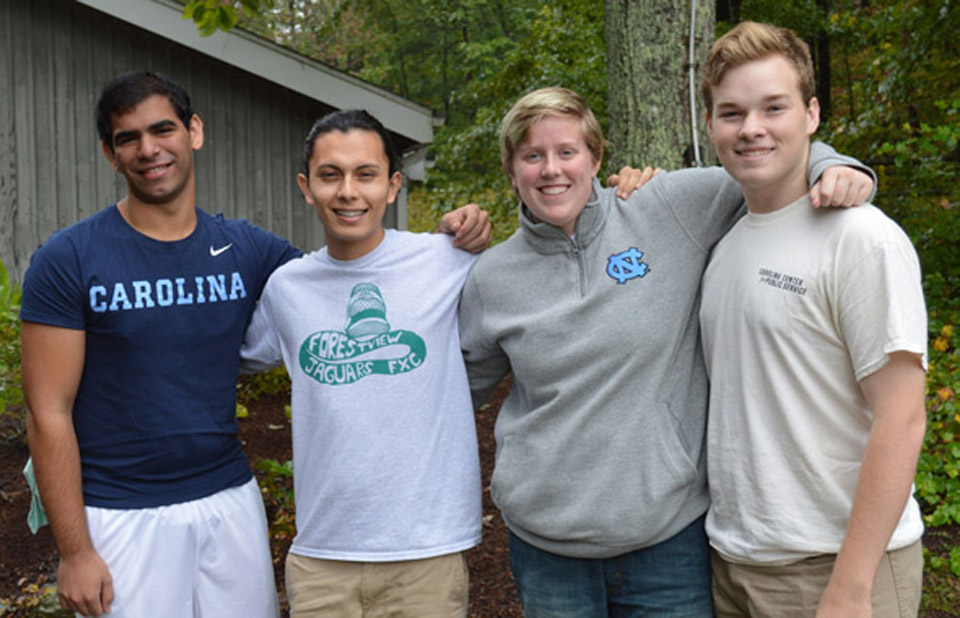
Rewarding an ethos of service
Inaugural MacDonald Community Service Scholars begin their work
Editor’s note: This story is based on a piece by Janell Smith
As the nation’s first public university, UNC embraces public service as central to its mission. A new scholarship is helping to make service an integral part of students’ academic experience, too.
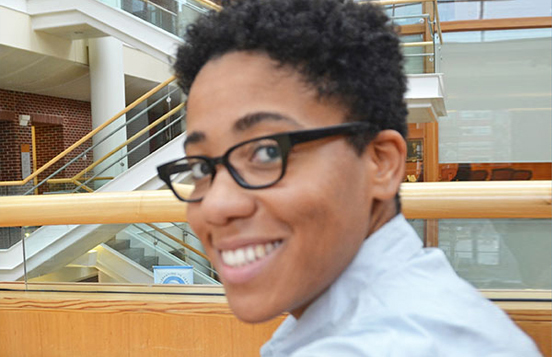
Following her benefactors’ lead
Graduate fellowship in public health supports dreams to affect change
By Morgan EllisChen-Yu Yen ’83 (Ph.D.) and his wife, Ray-Whay, left their native Taiwan for the Triangle in 1975 to pursue their educational dreams and to create a better world.
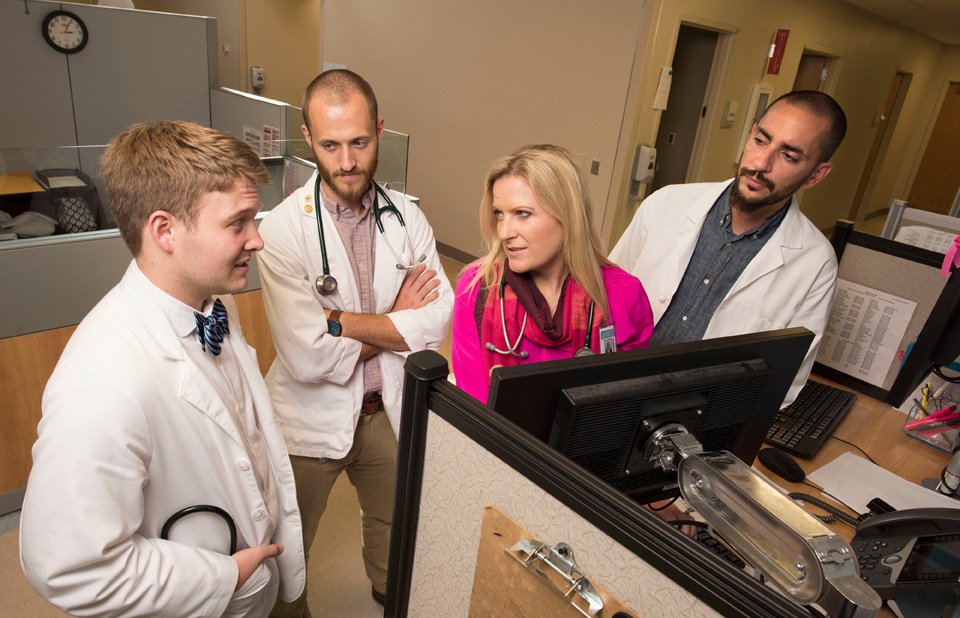
Accelerating toward service
One-of-a-kind program prepares family physicians to practice in underserved communities
By Jamie WilliamsThe inaugural class of the UNC School of Medicine’s Fully Integrated Readiness for Service Training (FIRST) Program began its training in April 2016.
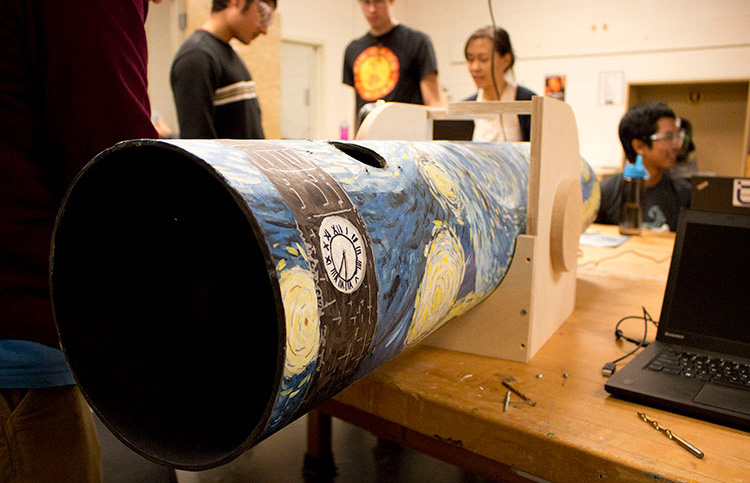
Making spaces for making stuff
Telescope-building class among ‘BeAM’ initiatives
To see the stars, sometimes you have to start in the basement.
About 20 Carolina students, with majors including biology, Russian languages and studio art, came together in fall 2015 to build a telescope in a “makerspace” in the basement of Hanes Art Center. They were there participating in the UNC College of Arts and Sciences’ Be a Maker (BeAM) initiative—thanks in part to a Carolina Parents Council grant.
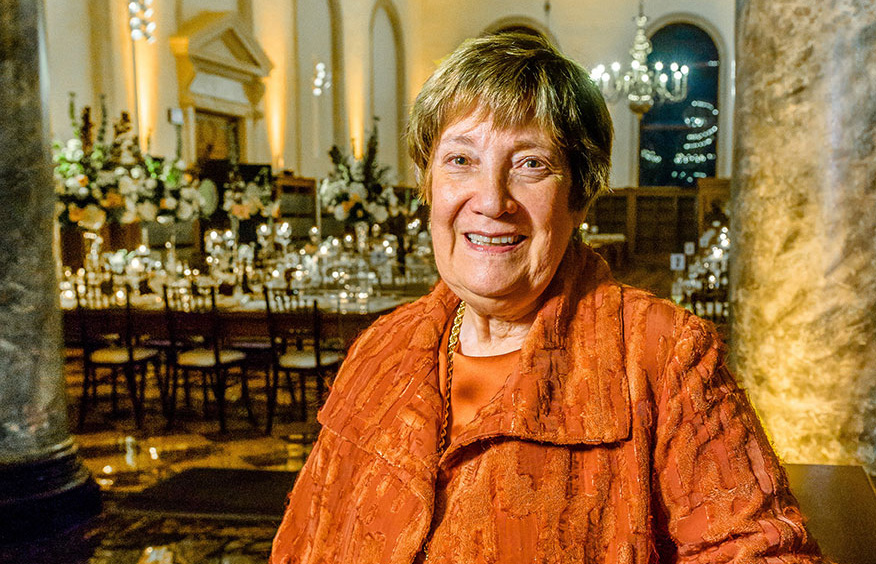
Gifts to UNC Libraries make history, preserve history
Historic amount, transformative impact
Florence Fearrington gives $5 million to Wilson Special Collections Library
Louis Round Wilson once wrote, “The library is not a side issue, but rather the pulsing heart of the University.” The heart of the UNC library bearing his name will beat strongly for generations to come, thanks to alumna Florence Fearrington.
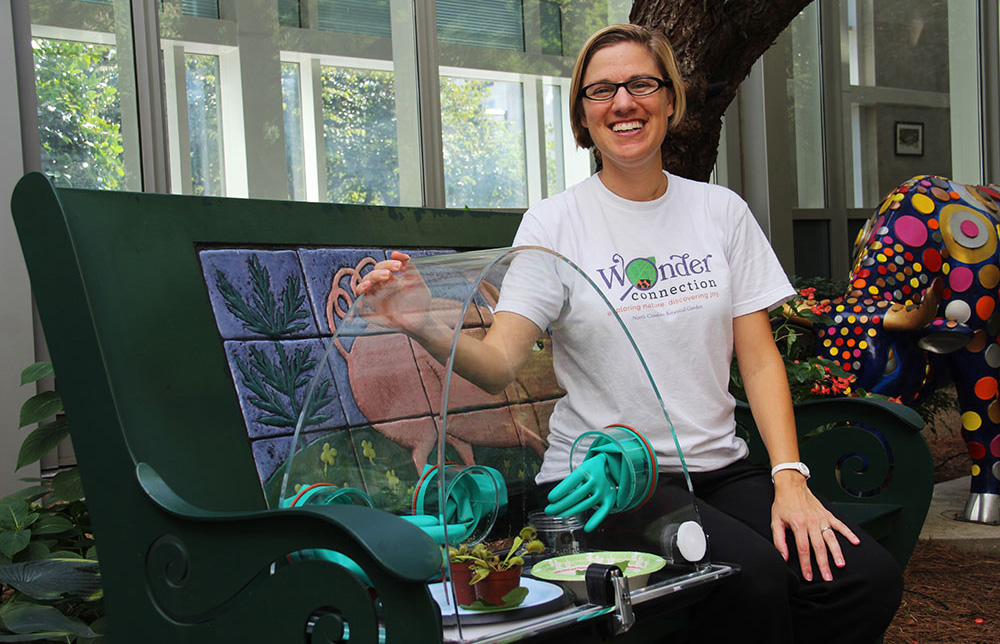
World of wonder
The NCBG’s Katie Stoudemire brings the outdoors inside, making nature safe for children with compromised immune systems
By Alyssa LaFaroEditor’s note: This story is based on a piece that originally appeared in endeavors.
Hordes of butterflies dance around blooming flowers to the beat of the buzzing cicadas. A firefly lightshow floods the spaces between trees. An unlucky ant meanders into the jaws of a Venus fly trap. There’s nothing more beautiful, or alive, than the North Carolina Botanical Garden (NCBG) in summer—but not everyone gets to experience its wonders. Katie Stoudemire is changing that.
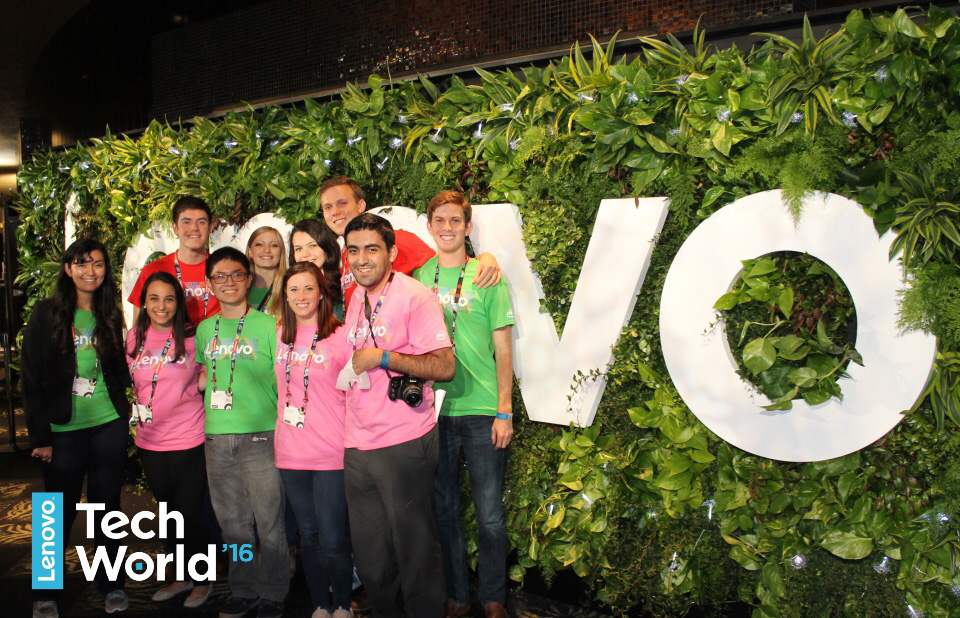
Building buzz for Lenovo
UNC student interns contribute to company’s most successful social media engagement event
In the spring of 2016, 10 UNC students contributed to a record-breaking public relations and social media performance around Lenovo’s signature technology showcase event—Tech World—via internships with stops in San Francisco, Beijing and Lenovo’s U.S. headquarters in Research Triangle Park, North Carolina.
Financials
scholarship funds created
scholarship funds total
fellowship funds created
fellowship funds total
professorships created
professorships total
Distribution of professorships created in FY 2016
- 1 College of Arts and Sciences
- 1 Gillings School of Global Public Health
- 4 School of Medicine
Commitments by Area*
- academic affairs - $151.4 million (30%)
- health affairs - $198.1 million (40%)
- athletics - $62.8 million (13%)
- other - $82.9 million (17%)
*Dollar amounts rounded to nearest $100,000
Commitments by Purpose*
- research - $176.5 million (36%)
- programming - $216.6 million (44%)
- faculty support - $24.2 million (5%)
- student support - $58 million (12%)
- capital - $20 million (4%)
*Dollar amounts rounded to nearest $100,000
Commitments: Current, Endowment and Capital*
- current - $281.6 million (57%)
- endowment - $194 million (39%)
- capital - $19.7 million (4%)
*Dollar amounts rounded to nearest $100,000
Donors*
- alumni - 39,166 (58%)
- students - 401 (1%)
- faculty/staff - 1,039 (2%)
- friends - 22,683 (33%)
- parents - 1,694 (3%)
- corporations - 1,474 (2%)
- foundations and trusts - 696 (1%)
- other organizations - 596 (1%)
*Donors of cash gifts; does not include Educational Foundation donors
Sources of Revenue*
- sales and services (30.6%)
- government grants and contracts (25.3%)
- gifts, private grants and investment income (8.6%)
- state appropriations (18.1%)
- tuition and fees (14.9%)
- other (2.5%)
*Unaudited; percentages rounded to nearest 10th
Commitment Totals: FY 2007 - FY 2016
in millions
year
Highlights
Fiscal Year 2016: July 1, 2015 – June 30, 2016
- UNC received $495.3 million in commitments in fiscal year 2016 (concluding June 30, 2016) from nearly 68,000 donors, marking the school’s best fundraising year in history and eclipsing fiscal year 2015’s previous record of $447 million by nearly $50 million. Commitments include pledges as well as gifts.
- In gifts and grants, Carolina secured $312.5 million, also a record. This type of support is immediately available to the University.
- Contributions from 12 donors of $5 million or more accounted for $139 million of the $495.3 million commitments total, with support ranging from student financial aid and merit scholarships to cancer care and library support.
- Commitments helped the University create six endowed professorships, as well as 52 undergraduate scholarships and 32 graduate fellowship funds.
A $40 million commitment from an anonymous donor, which included $20 million for two of Carolina’s signature scholarship programs—the Morehead-Cain and the Carolina Covenant.
The gift is designed as a $20 million match challenge to raise additional funds for merit and need-based scholarships. Running through October 2017, the Give for Good: Scholarship Challenge is structured as tandem $10 million matches—one benefitting the Covenant and the other Morehead-Cain Scholarships—to remove barriers to a world-class Carolina education. (Learn more.)
A $10 million commitment from Ken and Cheryl Williams to create the Ken and Cheryl Williams Fund for Venture Initiatives at the Lineberger Comprehensive Cancer Center, the state’s only public comprehensive cancer center.
The commitment will support promising, leading-edge cancer research and enable the center’s leadership to make timely investments in emerging, high-impact areas of cancer research. The couple have been longtime supporters of the University. Ken received his master’s degree from what is now the Gillings School of Global Public Health in 1970, and his doctorate in 1976. He served as senior vice president of Quintiles, a contract research company headquartered in Durham, North Carolina, before retiring. Both have been active donors and volunteers with the Educational Foundation and Lineberger Board of Visitors. (Learn more.)
A commitment from Charles B. Lowry (M.S.L.S. ’74) and Marcia Duncan Lowry to establish the Duncan-Lowry Deanship at the School of Information and Library Science (SILS).
This latest commitment, an addition to a documented planned gift in 2012, is the largest in the school’s history and the first at Carolina to be designated for a deanship. Charles Lowry, a SILS Distinguished Alumnus and Board of Visitors member, was inspired to make the gift by his friend and mentor, former SILS Dean Edward Holley, who advocated the philosophy of doing things “for the good of the order.” He also cited his and Marcia’s experiences as fundraisers for the academic institutions where Charles previously held leadership roles.
A $1.05 million grant from JPMorgan Chase & Co., to the Center for Community Capital (CCC) to support the development of innovative strategies and solutions to help under-resourced communities become more vibrant and economically inclusive across the nation.
CCC researchers will create an “Opportunity Index,” and develop new models for increasing financial capability and innovative technologies to deliver financial services.
A $3 million commitment from the John S. and James L. Knight Foundation to the School of Media and Journalism to launch a research center to explore new models for community news and support the testing and development of innovative digital media products for local news sites.
The school’s Knight Chairs, Penny Abernathy and JoAnn Sciarrino, will expand their digital media economics and marketing research, which focuses on finding patterns and strategies to better sustain legacy news organizations and digital startups in the 21st century. The research center will further allow the school to build upon its work developing new digital tools and products that can help reporters and editors be more effective and nimble in the newsroom.
A four-year, $1 million grant from The Andrew W. Mellon Foundation to the Carolina Performing Arts to launch and develop the DisTIL (Discovery Through Iterative Learning) Fellowship program.
The grant builds on the success of the Mellon Foundation-funded Arts@TheCore initiative from 2012, which emphasized the role of faculty in a university-based performing arts presenting program. The fellowship will support four artists who are active thought leaders in their fields and who aim to work across disciplines in a university setting. Fellows will be embedded in an academic unit to experiment and evolve in new directions.
A second Mellon grant of $1 million will support the Moore Undergraduate Research Apprentice Program (MURAP), a national program that aims to diversify the pool of students pursuing doctoral degrees in the humanities, social sciences and fine arts. The grant builds on previous Mellon Foundation support for the program and will fund MURAP through September 2019.
A $1 million gift from Prudence F. and Peter J. Meehan to the School of Social Work to support student scholarships, assist in the recruitment and retention of promising junior faculty, and fund new innovation initiatives to meet emerging needs in the field.
The gift, among the largest in the school’s history, will enable Carolina to advance its efforts to address pressing problems among some of society’s most vulnerable, starting in North Carolina. At least $150,000 of the gift will expand scholarships for master of social work students as part of an existing Meehan Scholarship Endowment. Another $500,000 will endow the Prudence F. and Peter J. Meehan Early Career Professorship to support assistant and associate professors. The remaining $350,000 will fund innovative projects or partnerships that align with the school’s strategic goals.
A commitment from alumnus Scott D. MacDonald to support undergraduate students dedicated to public service.
His gift has a dual purpose, creating the Scott D. MacDonald Community Service Scholarships in the Office of Scholarships and Student Aid as well as the Scott D. MacDonald Community Service Fellowship Program in the Carolina Center for Public Service. MacDonald Community Service Scholarships will provide tuition support to select students who have demonstrated a commitment to community service. The awards also provide resources to increase the students’ related knowledge and skills. As third-year students, MacDonald Scholars and potentially other community service scholars will become eligible for Scott D. MacDonald Community Fellowships. The fellowship program will provide monetary support enabling students to work with faculty and staff to identify and implement a signature, experience-based public service project. (Learn more.)
A bequest estimated at $7.5 million from an anonymous donor to establish three or more distinguished professorships in the College of Arts and Sciences.
The donor, a longtime supporter of the college, directed his gift to create professorships in the departments of communications and history, two of the largest academic departments at Carolina. Endowed professorships help recruit or retain outstanding faculty by providing salary support and research funding. Professorships funded at $2 million or more provide the most flexibility and are especially needed as competition increases nationwide for top faculty.
A $5 million gift from alumna Florence Fearrington to the University Libraries in support of the Louis Round Wilson Special Collections Library.
The gift is the largest ever made to Carolina’s libraries. In recognition, the grand reading room in Wilson Library will be renamed the Fearrington Reading Room. Fearrington was honored as a Distinguished Alumna at the 2016 University Day convocation on Oct. 11, for her pioneering career in finance and her achievements as a collector of rare books. $1 million of the gift is earmarked to help update the Fearrington Reading Room and adjacent exhibition areas. The remaining $4 million will create the Fearrington Special Collections Library Fund to help meet emerging needs and pursue opportunities that will benefit Carolina students and enhance the work of researchers. (Learn more.)
A $386,082 grant from the Kate B. Reynolds Charitable Trust to the American Indian Center to strengthen programming aimed at preventing obesity and chronic disease among the state’s Native communities.
The grant will support the Healthy Native North Carolinians Network (HNNC), a center initiative that leverages common goals and resources to promote “Healthy Eating and Active Living” practices in North Carolina’s tribes and urban Indian organizations. The grant builds on previous support from the Kate B. Reynolds Charitable Trust for HNNC, which launched in 2011. The funding will enable HNNC to reach 65,000 Native people.
A second Reynolds grant of $192,265 to the North Carolina Institute for Public Health (NCIPH)—the service and outreach arm of the Gillings School of Global Public Health—will help neighboring Edgecombe and Nash counties in eastern North Carolina use data analysis and visualization to enhance public health programs, reduce duplicate efforts and more efficiently serve their populations. NCIPH will gather community-level data and develop easy-to-understand data products to improve community health.
Board of Trustees
The following is a list of UNC Board of Trustees members who served during fiscal year 2016.
- Dwight D. Stone (Chair)
- Haywood D. Cochrane (Vice Chair)
- Charles G. Duckett (Secretary)
- Jefferson W. Brown
- PW. Lowry Caudill
- Donald Williams Curtis
- Julia Sprunt Grumbles
- Kelly Matthews Hopkins
- William A. Keyes IV
- Allie Ray McCullen
- William E. McMahan
- Hari H. Nath
- Houston Summers (Student Body President)

